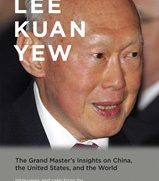The End of American World Order

To what extent is the American world order in decline, and what form of international order will take its place? This is the critically important question Professor Amitav Acharya pursues in his magisterial The End of American World Order.
Anxieties at the prospect of American hegemonic decline have long proved a staple of international relations literature. Given the voluminous and often highly partisan nature of debates on American decline, one might assume that Professor Acharya would be hard-pressed to make a fresh intervention on this topic. Happily, however, Acharya does not disappoint. Wisely side-stepping debates on America’s relative decline in comparison to rising powers, Acharya focuses instead on the fate of the larger American-led world order over which Washington has presided since World War II. While Acharya does not lightly dismiss America’s capacity for regeneration, he does nevertheless argue that the rise of non-Western powers and the resurgence of regionalism is dramatically transforming the global order. Specifically, in contrast to the America-centric order of the post-World War II era, Acharya maintains that we are now evolving towards a more regionalised and “multiplex” global order. It is one in which “the making and management of order is more diverse and decentralized, with the involvement of established and emerging powers, states, global and regional bodies, and transnational non-state actors.”
Having outlined his broad argument in chapter one, Acharya proceeds in chapters two through four persuasively to critique existing analyses of the nature and fate of the American world order. Acharya begins with a critical survey of debates on American unipolarity. He shows that such debates typically presume that an American decline and the return to multipolarity will be associated with growing international instability. Against this tendency, he argues in chapter three that the post-World War II American world order was neither as universal in scope nor as benign as its defenders have claimed. Significantly, Acharya also shows that many of that order’s more conspicuous features, such as the commitment to universal state sovereignty and norms of non-intervention, arose as much from the agency of non-Western powers as they did from the initiatives of Washington and its wealthy Western allies.
Lest Acharya be mistaken for touting non-Western triumphalism in the face of the American world order’s decline, in chapter four he takes to task the “hype of the rest”, persuasively scotching expectations that ascending non-Western great powers will seamlessly wrest stewardship of the global order from the United States. Despite their apparent dynamism, the BRICS and other ascending states lack the internal cohesion and collective solidarity necessary to remake the world in their own image.
More fundamentally, Acharya maintains that reductive models of hegemonic transition are in any case far too simplistic and outdated to make sense of the current international situation. Anchoring his analysis around the metaphor of the “multiplex”—a cinema complex in which multiple features are shown concurrently in different theatres—Acharya devotes the book’s last two chapters to tracing the contours of an emerging multiplex world, marked by diverse but at the same time open and entwined regional orders. Against widespread (particularly Western) anxieties that growing regionalism will portend the world’s fragmentation into regional blocs, Acharya argues that today’s regional orders will form an integral interconnected part of a larger global order, as well as providing greater opportunities for local powers (such as Indonesia in East Asia) to play a more proactive order-building role in world politics.
Cramming an abundance of important insights into a slim volume, Acharya’s latest intervention is a small book that carries a big theoretical punch. From an Australian vantage point in particular, the prospect of the American world order’s decline naturally evokes trepidation. Acharya makes a strong case that this decline is inevitable and already well advanced. But at the same time, his vision arguably offers activist middle powers such as Australia new leadership opportunities, provided we can accommodate ourselves to the more diverse and plural “multiplex” world now emerging.
The End of the American World Order is a punchy, provocative, innovative and incisive work. I recommend it as essential reading, not only for students of regionalism, but also for anyone interested in better grasping the power dynamics rapidly re-shaping the global order.
Amitav Acharya (2014) The End of American World Order (London: Polity Press)
Andrew Phillips is an associate professor in the School of Political Science and International Studies at the University of Queensland. This review is published under a Creative Commons Licence and may be republished with attribution.





